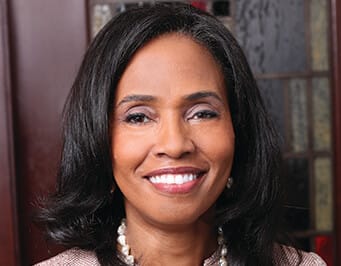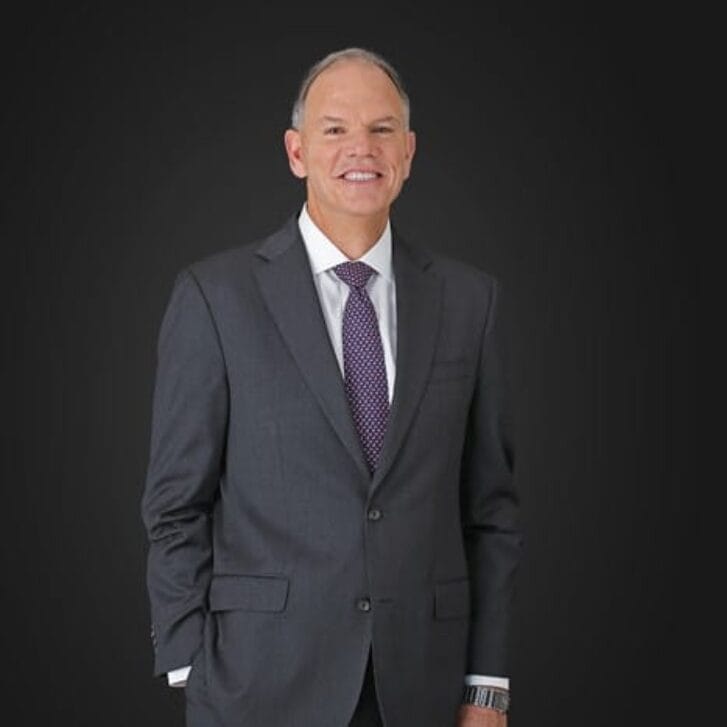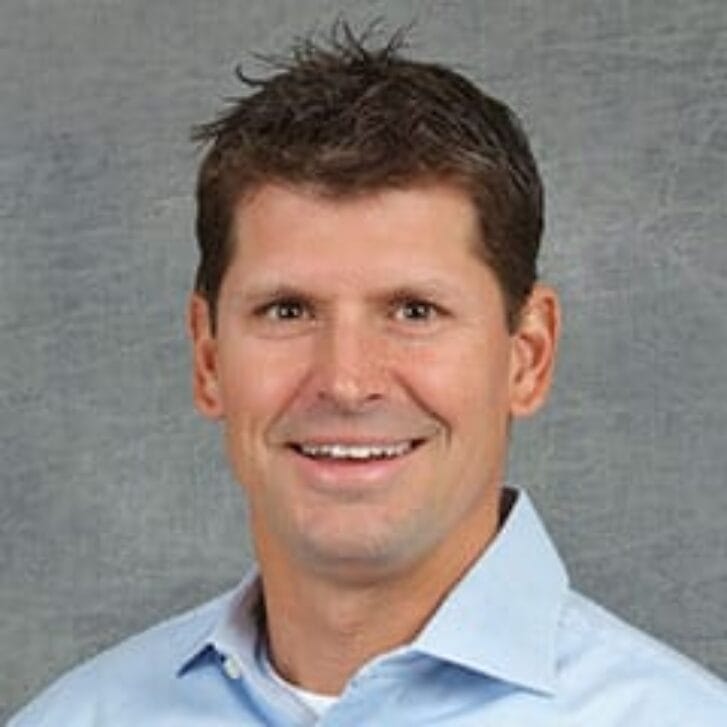We first recognized Suzanne Shank, WG’87, as one of Wharton’s 125 most influential people and ideas in 2006 at the School’s anniversary. Since then, Shank has not slowed down. As president and CEO, she has led Siebert Brandford Shank & Co., a municipal bond underwriter she co-founded in 1997, to become a top-10 player, a competitor with the biggest banks around. She was most recently named acting CEO of Siebert Financial Corp., the financial firm founded by her recently passed long-time friend, partner and role model Muriel F. Siebert. It’s one more impressive addendum to a trailblazer’s CV.
SUZANNE SHANK: Oh, I think it means integrity and strong ethics. It means friendly competition with your peers at other firms. Even though public finance is a deal-oriented business, my growth strategy centers around a focus on garnering repeat business rather than on each individual transaction. What that means to me is that when you go in and get a deal, you can maximize revenue on that deal or you can do the right thing by your client while being fairly compensated and know that they’ll call you when they have the need again to hire a firm.
WM: Were you ever tempted to do it the wrong way?
SHANK: I don’t think I’ve ever been tempted to do it the wrong way. I’m fairly conservative. I grew up in the South. My parents are conservative, and we laugh a lot when we see examples both in our personal lives and in business where it seems things have been easy.
When we started the firm, I knew the origin of every single deal for several years. Today, I have been fortunate to build a group of senior producers within the firm and capitalize on a pipeline of deals that neither my partner nor I originated or impacted. But competition is still fierce.
WM: Did you see yourself as a role model?
SHANK: Within the firm, I feel like I’m a role model because I think when you’re at the helm, everyone within the firm has the feeling that you’re working as hard as they are. And you also have to set the culture for the organization, and the way you do that is not by just what you say and dictate but best exemplified by how you conduct yourself.
WM: How about outside the company?
SHANK: Everyone is looking for a mentor, and it’s not like I’ve done everything perfectly. I think some of the success has been being in the right place at the right time and capitalizing on opportunity. So I get a lot of calls from people I don’t know or people you just run into looking for advice and what should they do, and often they’re asking, “Well, what did you do, and how can I do what you did?” And I say, “Don’t worry about what I did. What is your passion and what is your plan? And I’m happy to comment on that.”
WM: Who were your role models while growing up?
SHANK: I would say easily my parents, and both my parents were working very hard, very long jobs that didn’t necessarily end at 5:00. So they instilled in me at a very young age the value of a strong work ethic. I knew growing up I was going to get a job and be on my own or go to college at 18. And they have said I would do so or I was out of the house.
WM: Do you still have role models?
SHANK: I still call my mother every day and many times to discuss challenges at work, and I would say my partner Napoleon Branford has also been a role model. Muriel Siebert, prior to her death, was one of my role models. She was extremely successful while not compromising her integrity.
WM: Any advice to current students?
SHANK: Work is work, work is hard and work is time-consuming, and it takes you away from things you might want to do personally. I know it’s a cliché, but I love what I do, and I think that’s why I’ve succeeded. It is absolutely critical to get as many opportunities to explore what you think you might want to do, hands on. Volunteer your time if you have to with the company to get the hands-on experience.
WM: About work-life integration?
SHANK: I have two daughters. While it has been very difficult running a business and raising two daughters (now 14 and 18 years old), I really believe that it gives you a balance of perspective that is critical, and it has helped me manage stress. It has helped me have empathy as I work with others who also have families.
Perhaps it has helped me to be an entrepreneur and not have to report to someone or adhere to a rigid time schedule because I can go to work out of home and work on a tough geometry problem with one of my kids and then get back on the computer and keep working.
WM: Was there a certain point in your career where you stopped seeing yourself as a “woman leader” and just saw yourself as a “business leader”?
SHANK: I’ve always seen myself as a business leader. Being a woman has armed me with attributes that are indicative of great leaders. Women tend to multitask well. Women promote collaboration and teamwork. Women are their own toughest critics so we work hard. And as I said previously, we have great empathy for others. These are qualities necessary to be a great leader, and women are just wired with these strengths. Buy my goal is to be viewed as a leader, not only a woman leader, as I have great men working for me too.
Editor’s note: Read more about Wharton women and leadership and access the five other individual Q&As in our cover article, “On, About & For More Leadership.”


























